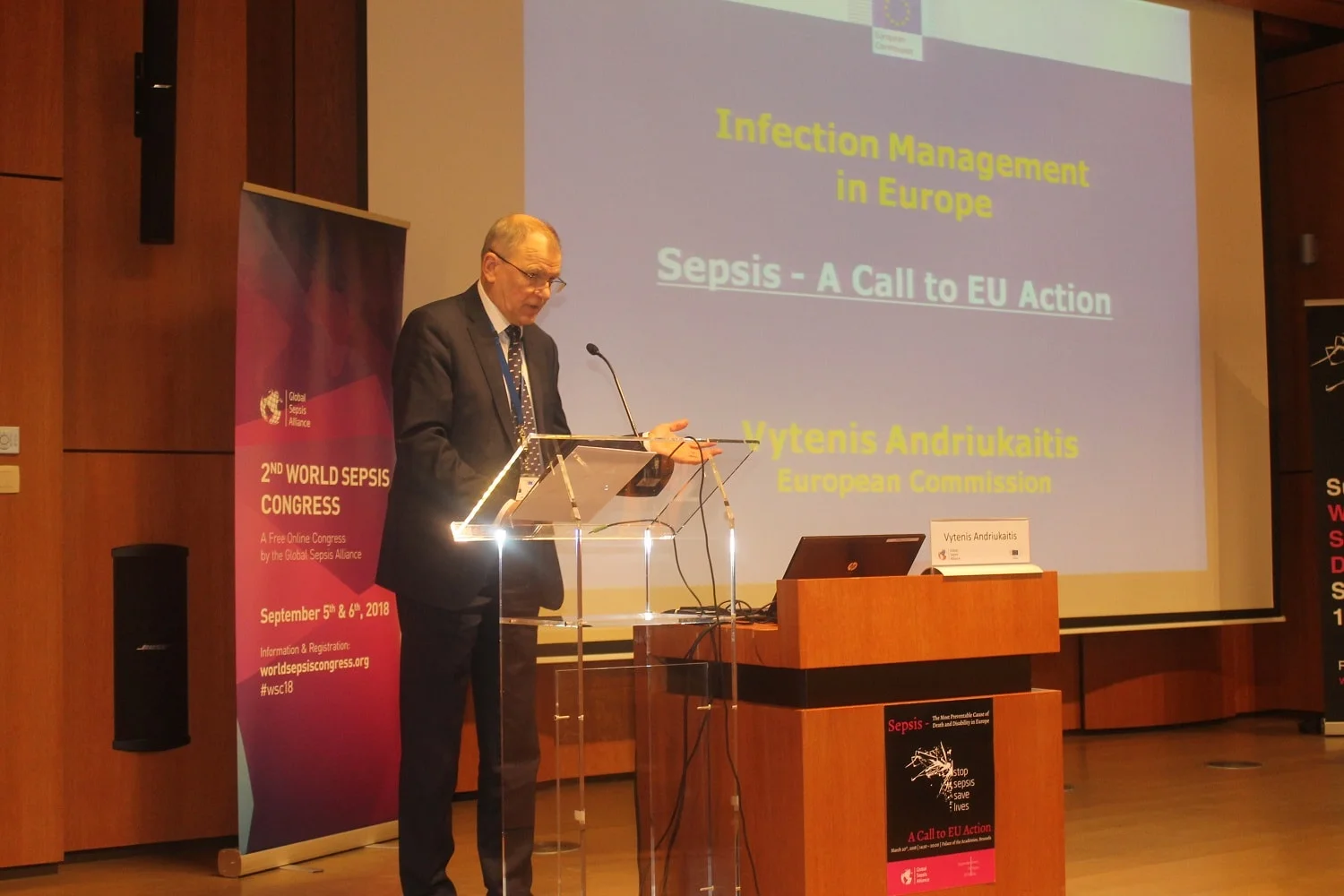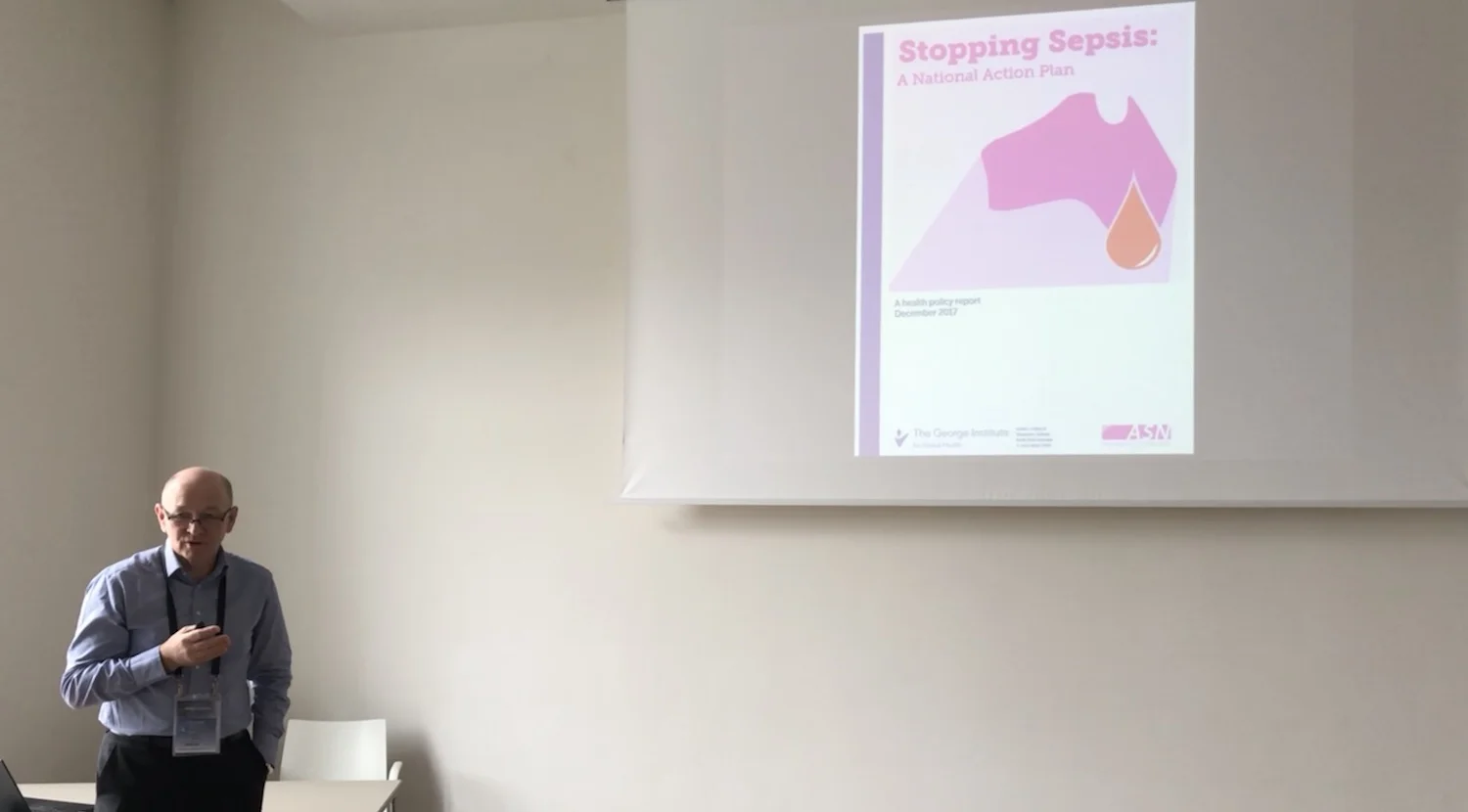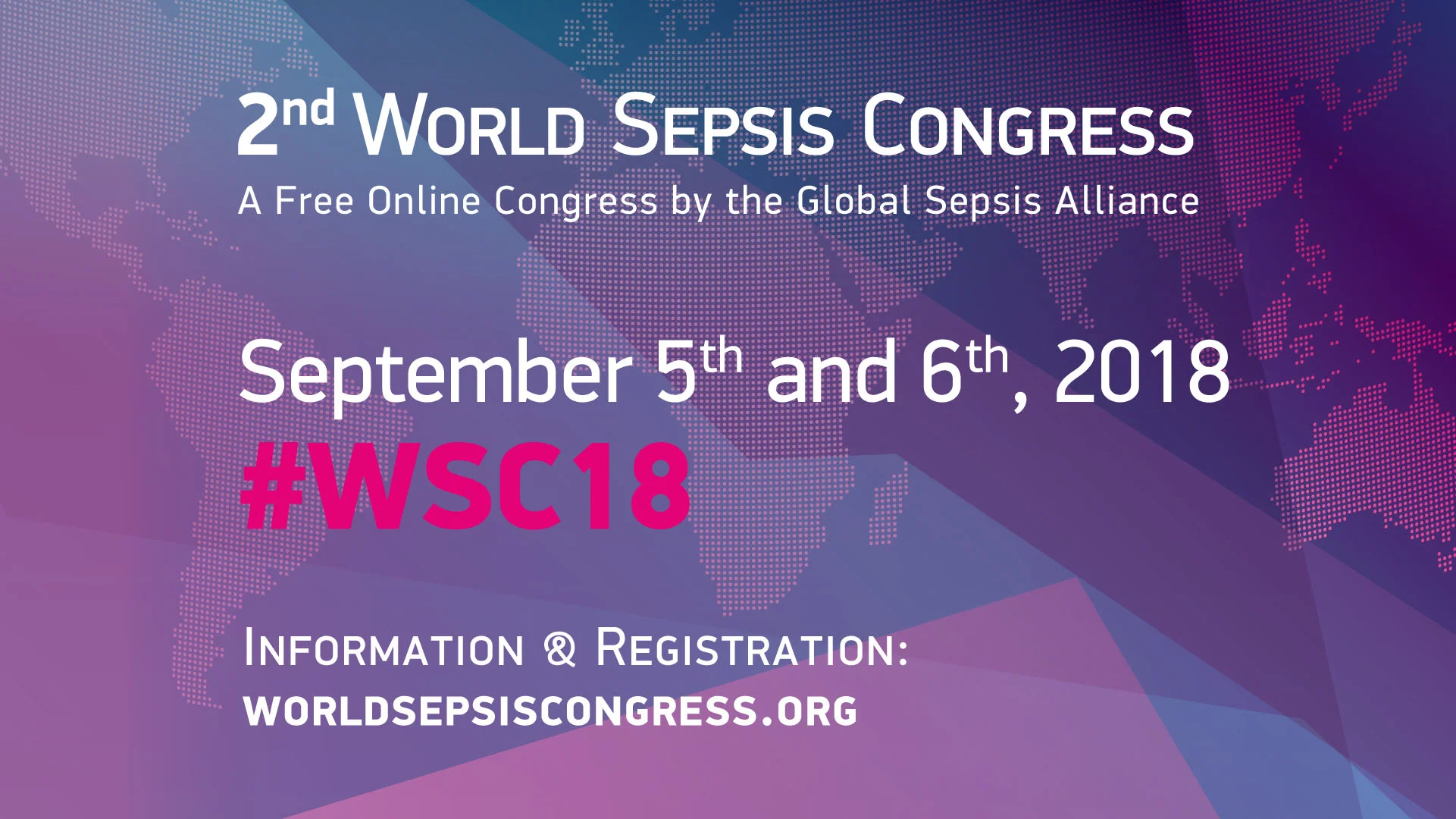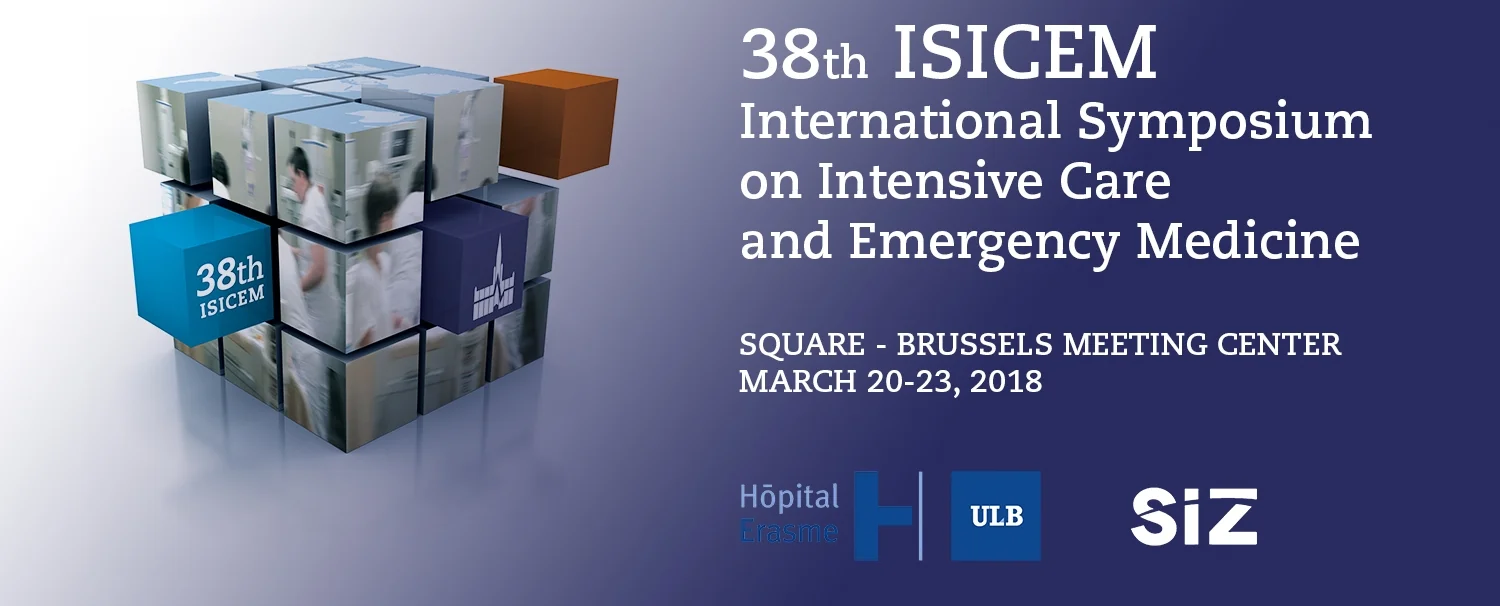On Tuesday, March 20th, 2018, the Global Sepsis Alliance, under the patronage of the EU Commissioner for Health & Food Safety, Vytenis Andriukaitis, hosted the event 'Sepsis - The Most Preventable Cause of Death and Disability in Europe - A Call to EU Action' in Brussels, Belgium. More than 120 people from different backgrounds and nationalities participated and enjoyed the keynote of Commissioner Andriukaitis and the presentations of Edward Kelley, Director Service Delivery and Safety from the WHO, Konrad Reinhart, Chair of the Global Sepsis Alliance, Ron Daniels, Founder and CEO of the UK Sepsis Trust, and Gary Cohen, President of Global Health from BD, as well as the personal story of Dennis Kredler, who is a sepsis survivor. All presentations can be downloaded below.
In the second part of the event, we founded the European Sepsis Alliance (ESA), which aims to unite European GSA Members and develop and implement a Pan-European sepsis strategy. In four working groups (Quality Improvement of Early Diagnosis and Management, Awareness Raising and Lobbying, Patient and Family Advocacy, and Research), we laid the foundation for this important milestone.
Before closing, the participants, representing major European stakeholders in the fight against sepsis, unamimously adopted The Brussels Sepsis Resolution (download below), which urges the European Commission, Council of Ministers, and the European Parliament:
- To endorse the WHO Resolution on Sepsis and to encourage all European countries accordingly to develop national Action Plans and strategies to improve prevention, recognition, management, and rehabilitation of sepsis;
- To support a comprehensive Pan-European infection management strategywith sepsis as a key element
- To promote awareness on sepsis by organizing an European Sepsis Week around World Sepsis Day (September 13th)
- To encourage and support the European Center for Disease Control (ECDC) to engage in sepsis education for citizens and healthcare professionals following the shining example of the Centers for Disease Control and Prevention in the US and similar initiatives in the UK and elsewhere,
- To consider the inherent links between AMR, ICP and sepsis in the new resolution of the EU Parliament to tackle antimicrobial resistance;
- To expand existing EU research programs on Infection control and AMR to better understand the human, medical, and economic burden of sepsis for Europe and to support the development of innovations to shorten and improve the diagnosis and management of sepsis and reduce the burden of its sequelae for survivors
To become involved in the European Sepsis Alliance, please get in touch.













































































































































